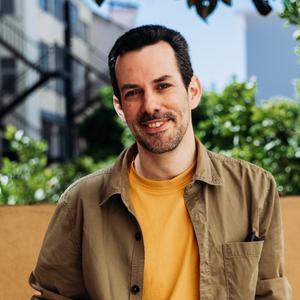I remember a web before Facebook and before Twitter. It was a place built so that people could talk among themselves, share and collaborate to build things that would make everyone's life easier.
Sure, you would also use to post funny pictures of cats or brag about your latest party. There was however a different way of doing things online that I can't explain. Less ego and more community.
I still love that web, and I still think we live in that reality. (Even though it does sound a bit lyrical to say this.) Sometimes I do lose faith on that web, for a little while. Then something wonderful happens, like a new open source project on Github, a new and constructive subreddit, or a blog post to rally time and resources towards something worth doing.
Cidadania 2.0
Lately, it was Cidadania 2.0 that brought my faith back. It's a conference on using the web to build social tools, forums and ways to practice citizenship and governance in a more effective and efficient way. This year it was filled with amazing new projects, blogs and platforms to help us understand what is going on in our own street or what we can do to improve our education system.
It is also a project built by the love and dedication of three people. Ana Neves, Ana Silva, and Vitor Silva work hard to bring everyone a free event, 1 day full with presentations and discussions and one morning to network with people who are behind new projects and look for partnerships and people to help.
And did I mention it is free to attend? I would gladly pay 50 euros or more to attend and meet so many interesting people. Yet, the team insists on keeping it as easy to attend as humanly possible. You would imagine that government institutions and other companies would jump at the chance to sponsor this initiative.
Unfortunately that doesn't seem to happen, as this year I didn't see many public institutions in the list of sponsors. It's not that the content of the conference isn't interesting to them. In fact, most of it challenges the status quo or proposes new models of governance and decision making. From where I stand, every city hall in Portugal should be ashamed for not to being present at Cidadania 2.0 and listed as a sponsor.
The people
Every good story needs a hero, right?
My friend Basílio decided to use the web and social media to pressure a number of public institutions into doing their job of making a street safer to walk in. It took him 2 years to get them into doing the job they are supposed to do anyway. Just think about it: they had to be pressured into doing their job.
I talked about this when I was in BledCom last year and you can find the slides in the end of this post.
Upload Lisbon
This is more about the future. Today mostly everyone from digital marketing and social media in Lisbon will be at Upload Lisboa. They will surely talk about Facebook, Twitter, the latest campaign and best practices. They will talk about what is new and exciting, because it is indeed exciting and interesting and shows great promise.
But I don't think they will all be talking about this web I know and love. Where the main goal is to get people to talk and understand each other, instead of increasing the reach of a facebook post. I risk saying they will forget about the importance of 4chan in monitoring, how to take part in a community on reddit and worst, they may forget to mention why #blogs are still so important.
Well, some of them might but I am here to talk about blogs and about the web I grew up with. How it is still alive and showing great promise even to those who seem to have forgotten about it. And thanks to Pedro Rebelo I know I am not alone.

